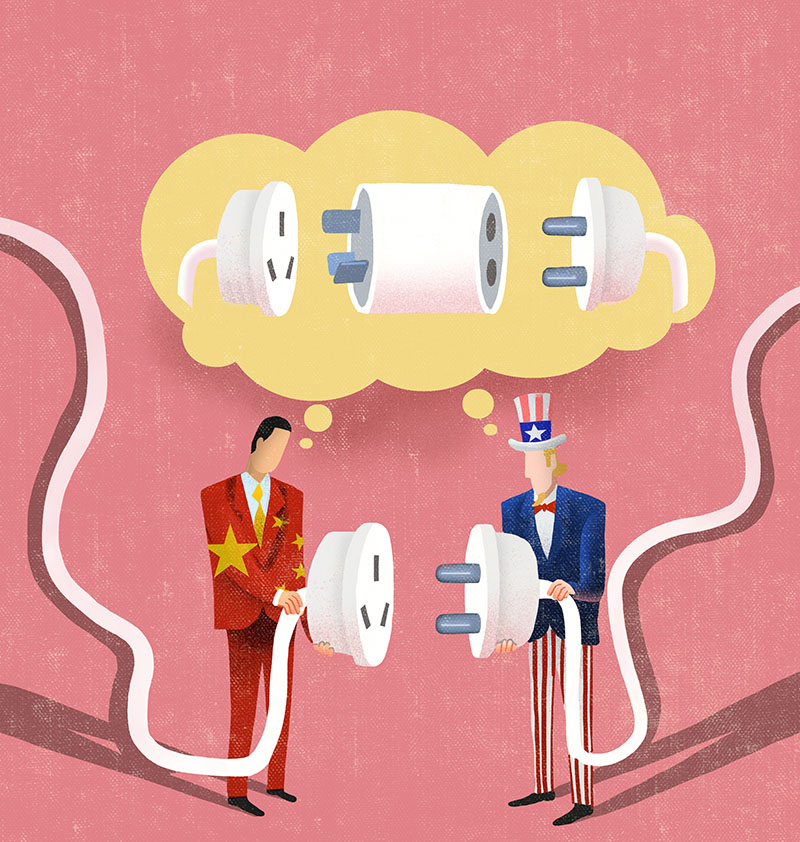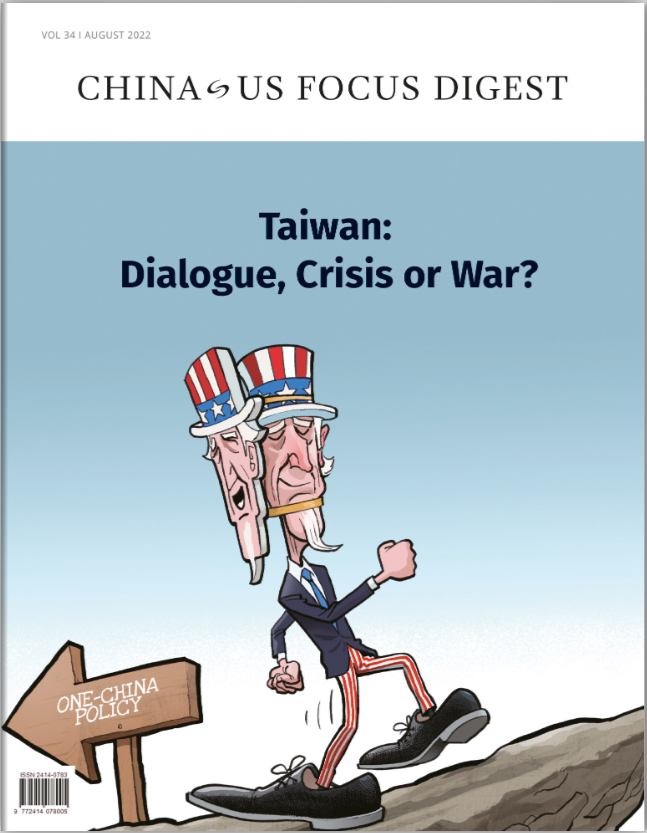Click to read the latest issue of China-US Focus Digest
An old adage is doing the rounds on Chinese social media: ‘the East is rising; the West is declining’ (Dongxing Xijiang 东兴西降). Perhaps it’s no surprise that such a nationally popular narrative is taking off in China, buoyed by recent events; China’s relative success in handling the pandemic, at least until recent sweeping lockdowns brought substantial costs to the economy and civilian life alike, helped fuel the narrative that China’s approach is superior to that of its counterparts.
The ascent of the country’s burgeoning middle class and sizable poverty alleviation efforts over the past decades,and the view that the West is consumed by internal disarray and ineffectual governance – have also contributed to this newfound assertiveness and confidence. To some extent, there is perhaps some grain of truth to this conjecture concerning partial Western decline. Culture wars, political fractures, and the disenfranchisement of wide swathes of voters in the West through rampant inequalities don’t paint a happy picture of the Western model.
Yet it would be foolish to conclude that the decline of the West is simply inevitable. This view completely neglects the institutional and structural resilience that liberal democracies possess when it comes to handling such external shocks and healing internal rifts. The West may be riddled with challenges, but it also remains innovative, dynamic, and open to migrants and talents who contribute, at times divergent, at times discordant, yet fundamentally invaluable productivity and skill sets to their economies. Indeed, these are the very same virtues celebrated and embraced by China in the late 1980s and 1990s when pragmatic reformist Deng Xiaoping took over the country’s helm to liberalize and modernize its economy.

But if it’s wrong to merely assume the West is in decline, it is also a mistake to be overly confident about the future of Western politics. On the other end of the spectrum to the doom-mongering about Western ideals sits the equally hubristic conviction that ‘democracy always prevails.’ Non-democratic regimes, the assertive argument goes, are inherently unstable and condemned to historical irrelevance. The view that China’s decline is the inevitable outcome of a non-democratic political system that is too ossified and centralized to respond to the demands and interests of the people – with the country's incredibly stringent pandemic policies oft-cited as an ongoing example – neglects the structures of technocratic resilience that have long sustained the party-state apparatus in face of substantial political upheaval and economic headwinds.
This familiar cluster of Western views, that global history is trending towards some "liberal democratic ideal" – and that all other countries must follow suit – is far from new. It may well offer comfort to those bewildered by the ever-increasing presence of regional terrorism and conflicts, ultra-national grievances, and chauvinistic militarism on the part of fragile empires around the world. Yet it quite simply isn’t true. History does not work that way – nor does politics and public psychology.
As demonstrated by recent events such as the Russian military action in Ukraine, democracy is anything but a foregone conclusion. Neither is the current form of democracy seen in many advanced economies appealing to all individuals across the world, including those residing in the proverbial Global South. There are those who are skeptical of what they see as its congratulatory navel-gazing and radically individualistic big-money politics. It’s only through objectively embracing these pluralistic debates over how government can and should work that democracies and non-democracies alike can survive and thrive.
Both narratives - that the West is doomed to decline or sure to triumph – are far too simplistic. In the former, the West is an antiquated bloc of complacent neo-colonialists, which ignores any attempted efforts to revamp and reform the system for the better. In the latter, China is portrayed hyperbolically and erroneously as a threat, with little attention paid to the transparent collaboration needed between China and the rest of the world on issues including trade and commerce, climate change, public health, and the regulation of big tech.
As tempting as it may be for political opportunists, at the end of the day, it is futile and counterproductive to set China and the ‘West’ up as rivals locked in an existential struggle over values. All this does is encourage both sides to view each other with structural antipathy and, in the words of former Australian Prime Minister Kevin Rudd, ‘mutual non-comprehension’.
By allowing the values of one party to trump the concerns of the other, this polarizing worldview discourages moderates from seeking reform and brokering dialogue. It also hampers any potential for either side to understand the other. Recent events in Beijing-Washington relations attest as much to this worry.
Viewing everything through the language of moral absolutes prevents parties from reaching practical agreements on issues including trade and commerce, public health and science, and education. It’s people’s lives – and livelihoods – that are being set aside in favor of ostensible ‘great’ power politics.
This is not to say that the search for consensus and agreement is desirable for its own sake – instead, in the long-term, this search enables positive changes on contentious high-stakes issues, such as human rights and labor conditions. It can also help to identify mutually agreeable terms for financial and trade collaboration – even as pressures are mounting for decoupling and a further reduction in interdependence and communication between both sides of the Pacific.
By viewing each other as being in inevitable decline, China and countries in the West run the risk of believing the other side is likely to act impulsively and receptive towards only the most aggressive displays of strength. From this, a slide towards new lows in relations genuinely does become inevitable. Both sides should take this risk of escalatory spiral seriously. Not only does steering clear of absolutes in great power politics reflect a more truthful reality, but it also produces better outcomes for all.
